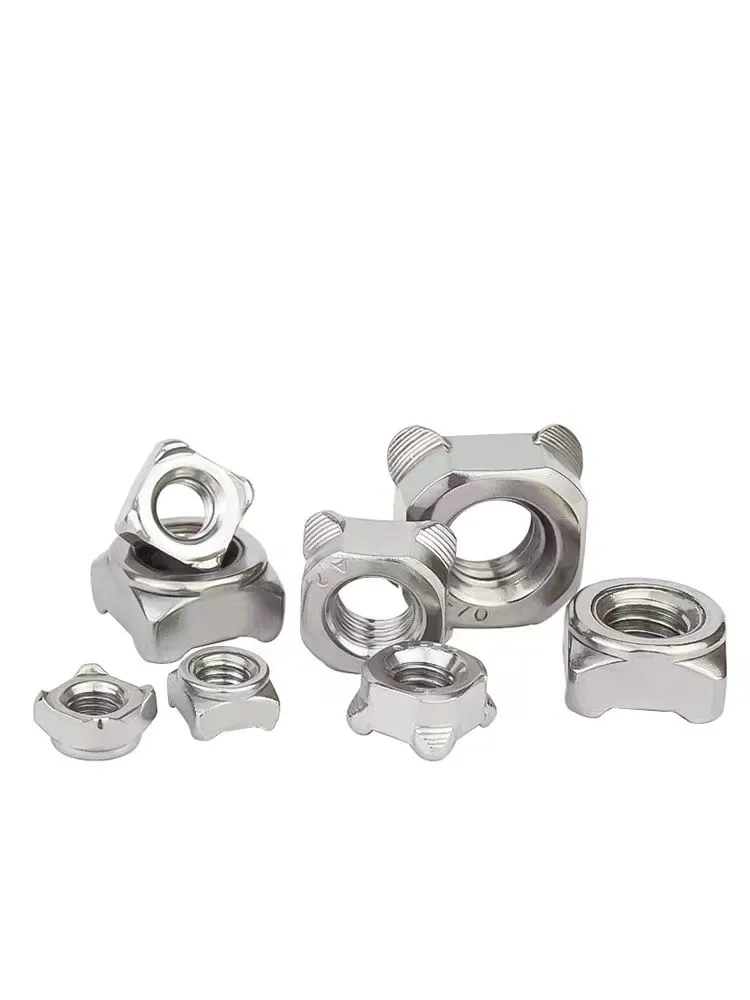

Stainless Steel Spring Washers for Enhanced Durability and Performance in Fastening Applications
Nov . 19, 2024 02:26 Back to list
Stainless Steel Spring Washers for Enhanced Durability and Performance in Fastening Applications
The Importance of Stainless Steel Spring Washers
Spring washers are essential components in mechanical assemblies, providing a variety of functions, such as load distribution, vibration dampening, and ensuring the integrity of bolted joints. Among various materials used to manufacture these vital components, stainless steel stands out due to its excellent properties. This article explores the significance of stainless steel spring washers, their applications, and why they are preferred in many industries.
Understanding Spring Washers
Spring washers are designed to provide a spring-like action when compressed. They help maintain tension in bolted joints by compensating for the relaxation of the fastened components over time. The most common types of spring washers include split ring washers, disc spring washers, and belleville washers, each serving distinct applications. However, regardless of their type, the material used in their construction greatly influences their performance.
Why Stainless Steel?
Stainless steel is an alloy of iron with a minimum of 10.5% chromium content, which imparts a layer of protection against corrosion. This makes stainless steel an excellent choice for spring washers used in various environments, particularly those that are prone to moisture and other corrosive elements. The corrosion resistance, mechanical strength, and durability of stainless steel ensure that spring washers maintain their functionality over time, even under challenging conditions.
Properties of Stainless Steel Spring Washers
1. Corrosion Resistance One of the most significant advantages of using stainless steel spring washers is their resistance to rust and corrosion. This property is critical in applications within the automotive, aerospace, and marine industries, where exposure to weather conditions can lead to premature failure of unprotected fasteners.
2. High Strength and Flexibility Stainless steel spring washers offer a great balance of strength and flexibility. They can withstand greater loads while still providing the necessary spring action to maintain tension. This makes them ideal for high-stress applications like machinery and structural components.
3. Temperature Resistance Another notable property of stainless steel is its ability to withstand extreme temperatures. This makes stainless steel spring washers suitable for applications in environments where high heat or cold could affect other materials.
spring washer stainless steel

4. Biocompatibility In medical applications, the biocompatibility of stainless steel ensures that spring washers do not react adversely within the human body. This quality makes them usable in surgical devices and implants.
Applications of Stainless Steel Spring Washers
Stainless steel spring washers are widely used across various industries. Here are some primary applications
1. Automotive Industry They are extensively used in vehicles for securing bolts and preventing loosening due to vibrations. Their corrosion resistance also ensures that they remain effective in various weather conditions.
2. Aerospace Engineering In the aerospace sector, reliability is critical. Stainless steel spring washers are used in various components to ensure safety and performance in flight.
3. Oil and Gas The oil and gas industry often operates in corrosive environments. Stainless steel spring washers are employed to secure drilling equipment and pipelines, ensuring their integrity against harsh conditions.
4. Construction In construction applications, such washers help secure structural connections, preventing shifting and ensuring durability over time.
Conclusion
In summary, stainless steel spring washers are critical components that enhance the functionality and longevity of mechanical assemblies across various industries. Their excellent corrosion resistance, strength, and flexibility make them a preferred choice for applications where reliability is paramount. As industries continue to evolve and demand higher standards for performance and safety, the significance of stainless steel spring washers will undoubtedly grow, solidifying their status as indispensable components in modern engineering.
Latest news
-
High-Strength Hot Dip Galvanized Bolts - Hebei Longze | Corrosion Resistance, Customization
NewsJul.30,2025
-
Hot Dip Galvanized Bolts-Hebei Longze|Corrosion Resistance&High Strength
NewsJul.30,2025
-
High-Strength Hot-Dip Galvanized Bolts-Hebei Longze|Corrosion Resistance&High Strength
NewsJul.30,2025
-
Hot Dip Galvanized Bolts-Hebei Longze|Corrosion Resistance&High Strength
NewsJul.30,2025
-
Hot Dip Galvanized Bolts - Hebei Longze | Corrosion Resistance, High Strength
NewsJul.30,2025
-
High-Strength Hot Dip Galvanized Bolts-Hebei Longze|Corrosion Resistance, Grade 8.8
NewsJul.30,2025

